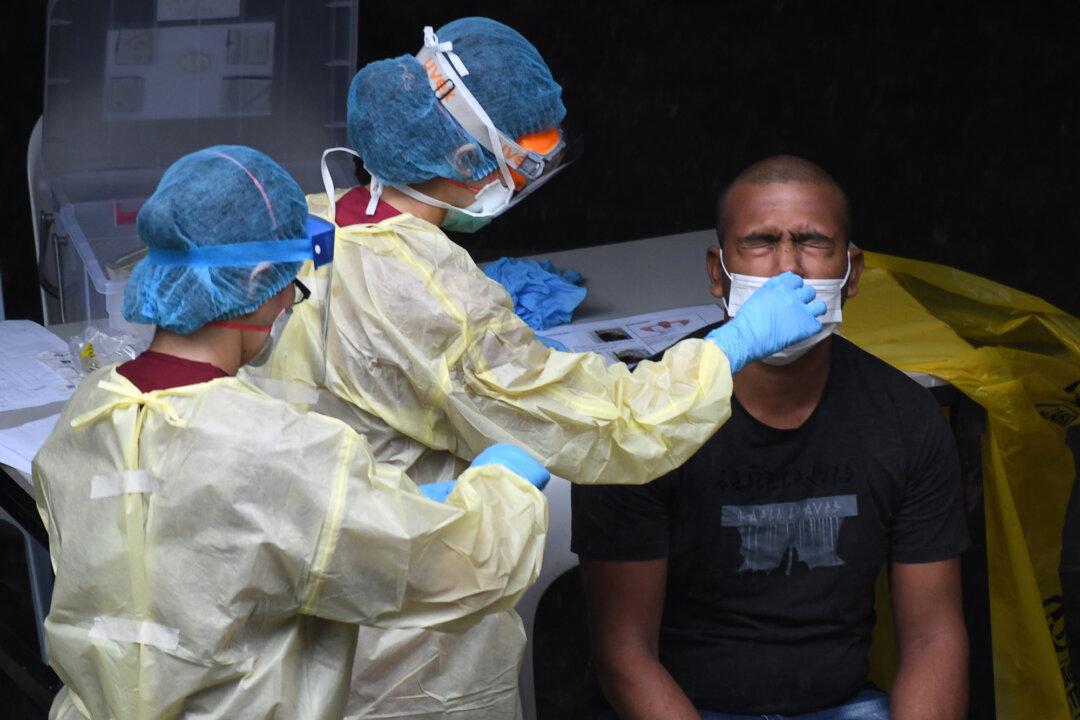Singapore on Oct. 1 hit its record daily number of COVID-19 infections since the start of the pandemic, despite vaccinating the majority of its population.
The Southeast Asian city-state recorded a new high of 2,909 COVID-19 cases on Oct. 1, the Ministry of Health said in a statement on Oct. 2, but noted that more than 98 percent of infected individuals have mild or no symptoms.





